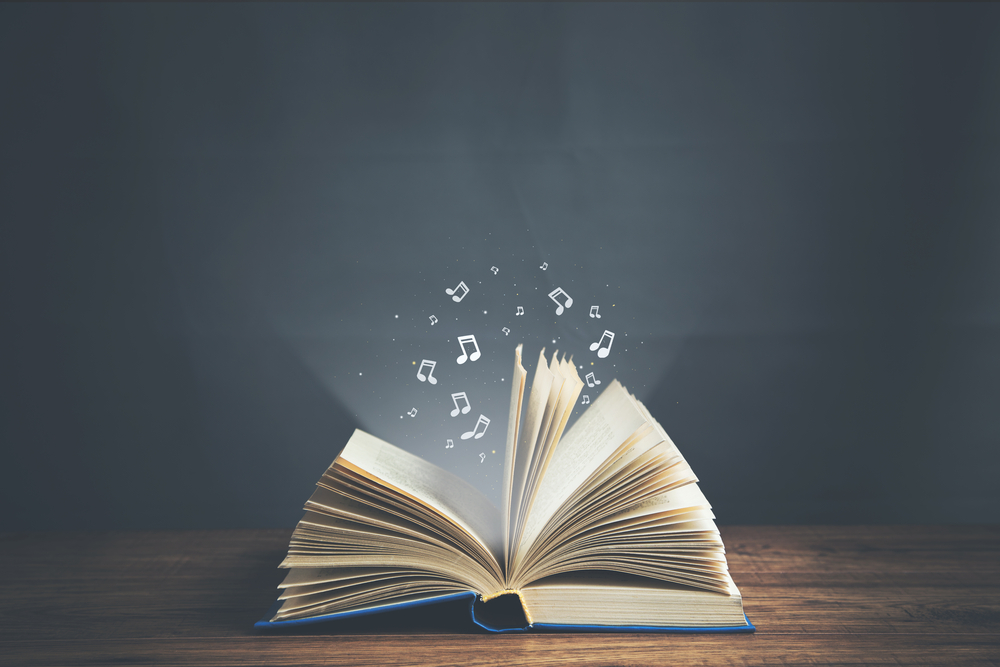Capturing music in words
Capturing music in words
Capturing music in words
-
Hannah
-
Hannah

When I write, I visualise the story in my mind as if it is a film on a screen. For Concerto, that of course meant thinking carefully about the soundtrack. Were Concerto a movie, rather than a book, it would have been so much easier to encapsulate the music that features regularly. My challenge while writing the novel was to try to capture the power and beauty of the music… in words.
At the start of the novel, Catriona is a teenager who is falling for the man next door: Umberto, a young, famous composer. Late at night, she stands on her balcony and listens to strains of music floating on the breeze from Umberto’s home, where he is playing his piano. She is a silent, invisible audience for his compositions, and she has come to eagerly anticipate these moonlit concerts. I write:
There came to her strains of a melody she didn’t recognize, music unlike anything she had ever heard before. At first, it was so quiet that it might have been merely a sigh of the breeze or the far-off lapping of the sea on the shore. Then, without warning, it began to hum and swell like the ocean waves, growing louder, then louder still, until the notes seemed to leap across the garden, heading directly towards her. Catriona closed her eyes and now it was everywhere, falling out of the sky, surrounding her, embracing her in its powerful arms, clasping her against its throbbing heart. Then, as the music built and surged, she could almost imagine that the gates of Paradise had opened, giving passage to a chorus of angels, like the very ones guiding Adam and Eve that Umberto had told her about, their moving limpid voices flooding the night with a melody that was sweet and sad, yet at the same time brave and bold. Oh, and beautiful, so beautiful! It filled her ears, her head, and touched the deepest recesses of her soul, filling her with such emotion that tears welled up in her eyes and rolled down her cheeks in an endless stream.
There was one last mighty thunder of sound that shook Catriona to the core, and then it stopped. In a split second it had gone; the music had ceased, taking with it all the enchantment, the elation, and the jumble of glorious feelings that had flooded her, leaving in its wake the most dreadful and desolate gulf Catriona had ever known.
Here, it is through exploring Catriona’s emotional reactions to the music that I hope to help the reader form an impression of the piece in their mind. Though you may not know the exact notes, the tune and the rhythm – for this is Umberto’s own composition – you can feel how the music affects the listener, and can understand why Catriona feels bereft when the music stops.
A little later in the book, Catriona performs in a music competition in order to win a place at the Conservatoire National Supérieur de Musique et de Danse in Paris. Her chosen piece is a classic from the soprano repertoire, the ‘Un Bel di Vedremo’ aria from Madam Butterfly.
For this scene, I had the advantage that the piece is a song that the reader may know (or can look up; see http://youtu.be/bkUq98oiyRc). Still, it was important to portray how Catriona sings the aria and how Umberto – a judge in the audience – reacts to her performance. I write:
There was anguished pleading and tones of hope in Catriona’s beautiful, well-schooled voice as she moved through the dreamlike melancholy of the opening phrases, but there was also an irresistible strength of purpose in the melody’s rhythmic simplicity, representing Butterfly’s steadfast and urgent longing for Lieutenant Pinkerton, her love. There was such poignancy and innocent clarity in Catriona’s tone that she held her audience utterly captive as she sang about faithfully awaiting her beloved’s return. As she came to the words ‘Vedi? È venuto! Do you see it? He is coming!’ Catriona’s gaze found Umberto’s once more and it was as though she sang only for him.
During the whole performance, Umberto’s eyes did not leave Catriona’s, gazing at her with the same expression of desire she had seen in her dream. His looks became increasingly ardent as the aria progressed, immersing her entirely in fire. Catriona could feel her cheeks burning and her whole body come to life, vibrating with a passion unknown to her until then; and more than ever she sang as though she truly was Madam Butterfly, awaiting the return of her beloved husband, whom people were saying had deserted her…
This evening, under Umberto’s intense, fixed gaze, she… trod the golden tightrope between sentiment and true pathos, her voice soaring with devastating power alongside the shimmering accompaniment of the orchestra, again and again fortissimo, and finally rising to her highest note in the aria on the word ‘aspetto’, I wait.
What do you think? Can you picture Catriona singing and the audience watching, spellbound? Can you hear in your mind the haunting melody; feel the emotions of both the character Butterfly and Catriona herself as she sings?
Can music captured in words create catharsis and beauty as does music to our ears?